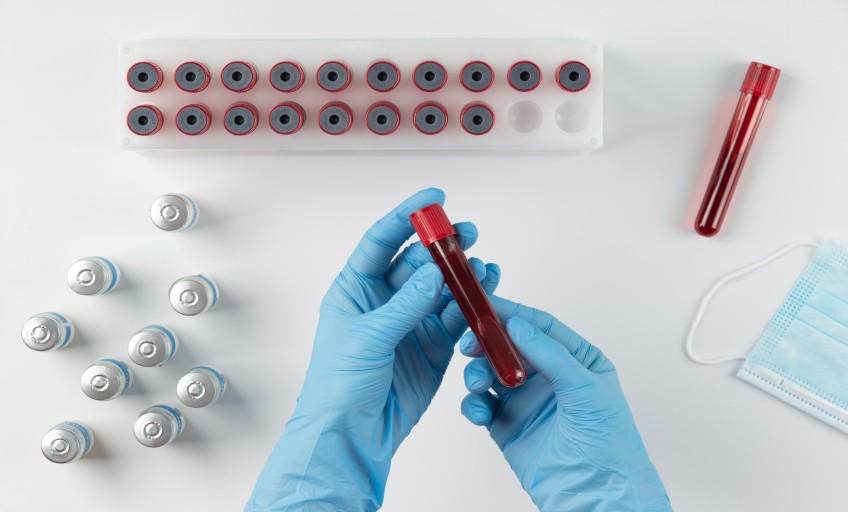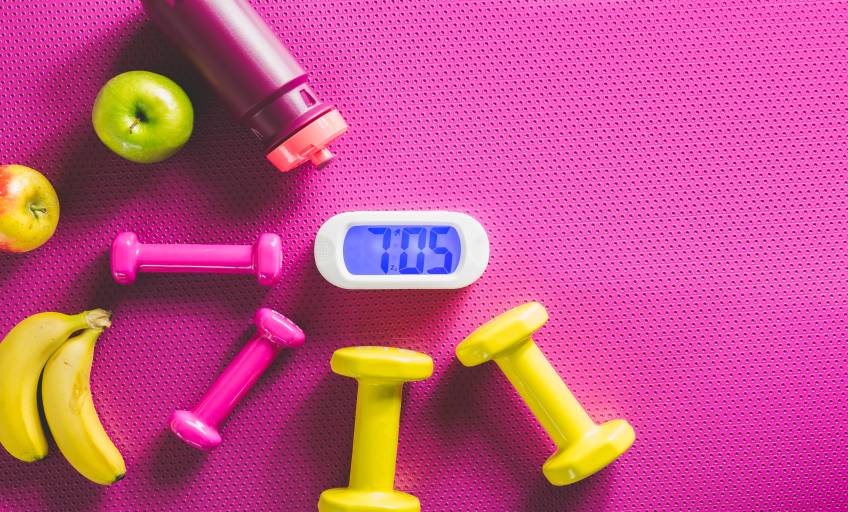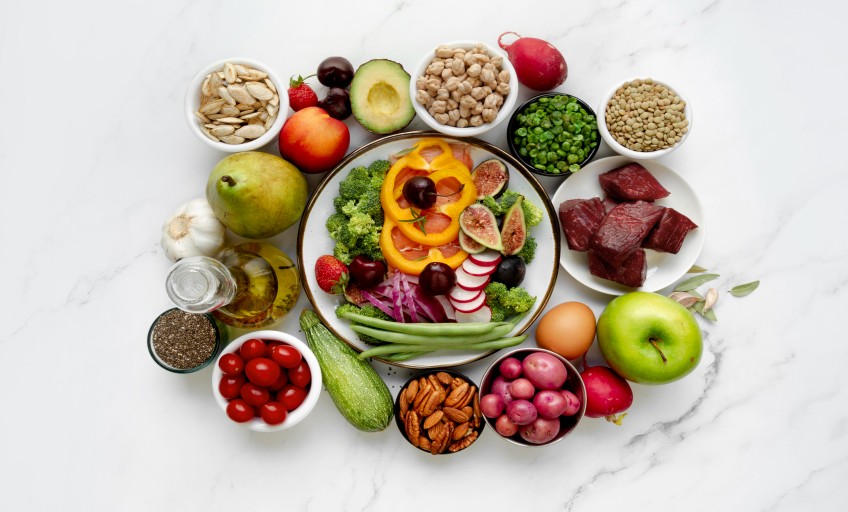Key Takeaways
- HbA1c is a blood test that measures the average blood sugar level over the past two to three months.
- Inconsistent medical adherence, inadequate insulin dosage, poor diet, and underlying health conditions can lead to high HbA1c.
- Adhere to your treatment plan, control portions, exercise regularly and manage stress to reduce HbA1c.
Understanding HbA1c is essential for anyone managing diabetes, as high levels can increase the risk of complications. By learning how HbA1c works and what affects it, you can take important steps to maintain a healthy life.
What you need to know:
What is HbA1c?
Hemoglobin A1c (HbA1c) is a blood test that measures the average blood sugar level over the past two to three months. It measures HbA1c levels, or the percentage of hemoglobin coated with glucose and shows how well your blood sugar is controlled. It can be used to diagnose diabetes or prediabetes. A doctor may order the test to screen for diabetes in overweight or obese people or those at high risk, or at least twice a year to monitor blood glucose levels in people diagnosed with diabetes.
Reasons for high HbA1c levels
You can have high HbA1c levels due to various factors that can impact your health negatively.
Inconsistent medication adherence
Certain medications, such as steroids and opioids, can increase HbA1c. Age, gender, socioeconomic status, and education level can all impact medication adherence. The high cost and inaccessibility of treatment, side effects from medications, and the number of pills a patient needs to take can all be possible risk factors for non-adherence.
Inadequate insulin dosage
Inadequate insulin dosage leads to consistently elevated blood sugar levels. When insulin dosage is too low, the body cannot efficiently move glucose from the bloodstream into the cells, resulting in higher blood glucose over time. This causes more hemoglobin to attach to sugars, raising HbA1c levels. Factors contributing to inadequate insulin dosage include:
- Incorrect dose adjustments
- Skipping or missing doses
- Insulin resistance
- Infection or illness
Poor diet


The following types of food can cause high HbA1c levels:
- Sugary drinks such as soda, juices, and sports drinks
- Highly processed foods and baked goods, which often contain trans fats
- White rice, bread, and pasta
- Breakfast cereals with added sugar
- Yogurts with added sugar
- Honey and maple syrup
- Flavored, sugary coffee drinks
- Fried foods
Underlying health conditions
The following health conditions can result in high HbA1c levels.
- Anemia (lack of iron),
- Kidney disorders,
- Spleen disorders,
- Gum disease,
- H. pylori infection (bacterial infection in the stomach that causes inflammation and ulcers),
- Chronic inflammation (prolonged response to an injury or infection),
- Obesity or being overweight,
- Sleep disorders,
- Thyroid disorders, and
- High triglycerides (a type of fat from the food you eat).
4 Steps to lower your HbA1c
Reducing your HbA1c levels is important for managing diabetes and preventing complications. Here are some steps you can follow to reduce HbA1c levels:
Adhering to your treatment plan
Some people can manage diabetes and prediabetes with diet and exercise; others need medication. The right medication and dosage vary from person to person, so work with your doctor to create an individualized treatment plan and then stick to it.
Portion control
Eat a balanced diet low in sugar, salt, and fat. Choose foods high in fiber, fruits and vegetables, small servings of lean meats and poultry, and low-fat milk or cheese. Avoid carbohydrate-rich foods like sweets, sugary beverages, white breads, potatoes, pasta, and starchy vegetables.
Regular exercise


Regular exercise can help your body use insulin more efficiently to better process the glucose in your blood. It can lower blood glucose and improve your A1c. Aim for at least 150 minutes of moderate or 75 minutes of vigorous-intensity exercise every week. You can combine aerobic activities with resistance exercises.
Managing stress
Stress causes your body to prepare for a fight-or-flight response and store energy through glucose and fat. Over time, this can increase your A1c levels. To reduce stress, relax, spend time with the people you love, and do things you enjoy. Mindful meditation and other relaxation techniques like deep breathing, progressive muscle relaxation, and guided imagery can also help. If you still feel chronically stressed, talk to your doctor.
Optimize your HbA1c
HbA1c is a key indicator of long-term blood glucose control, providing insight into overall diabetes management. Keep HbA1c within target ranges to reduce the risk of complications and achieve better health outcomes. Follow the abovementioned tactics through a balanced approach of diet, exercise, and medication to reduce HbA1c levels and work closely with your healthcare provider to maintain optimal HbA1c levels and improve your quality of life.
Summary
HbA1c measures average blood sugar levels over 2-3 months, offering key insights into diabetes control. Managing HbA1c effectively helps reduce the risk of serious health complications and enhances the quality of life.
Stay tuned to the Activ Living Community. Keep up to date with the latest health tips and trends through expert videos, podcasts, articles, and much more on nutrition, fitness, mindfulness, and lifestyle conditions like Asthma, Blood Pressure, Cholesterol, and Diabetes. Activ Living ke saath sahi sehat ki shuruat ABHI karo.
You may also be interested in the following blogs:
- How To Manage Diabetes In Winter: 5 Tips To Combat The Cold
- Prediabetes vs Diabetes: Understand The Differences
Popular Searches
How to lower blood pressure | Fruits good for liver | Unhealthy foods | Ragi Benefits | Basal Metabolic Rate | Acupressure points for High Blood Pressure | Ayurvedic medicine for blood pressure | How to control cholesterol at home | Homeopathy for Asthma | Biological Age | Home remedies for TB | Natural beta blockers | Negative effects of internet | Types of walking | Blood pressure calculator | Blood sugar calculator | BMI Calculator













